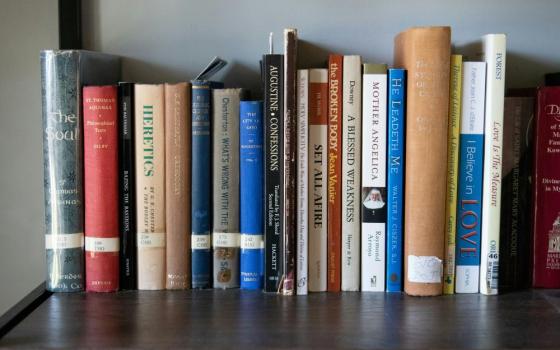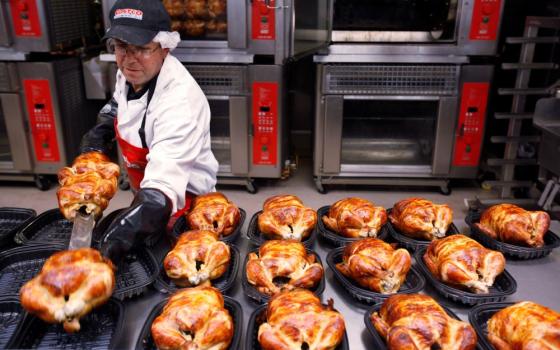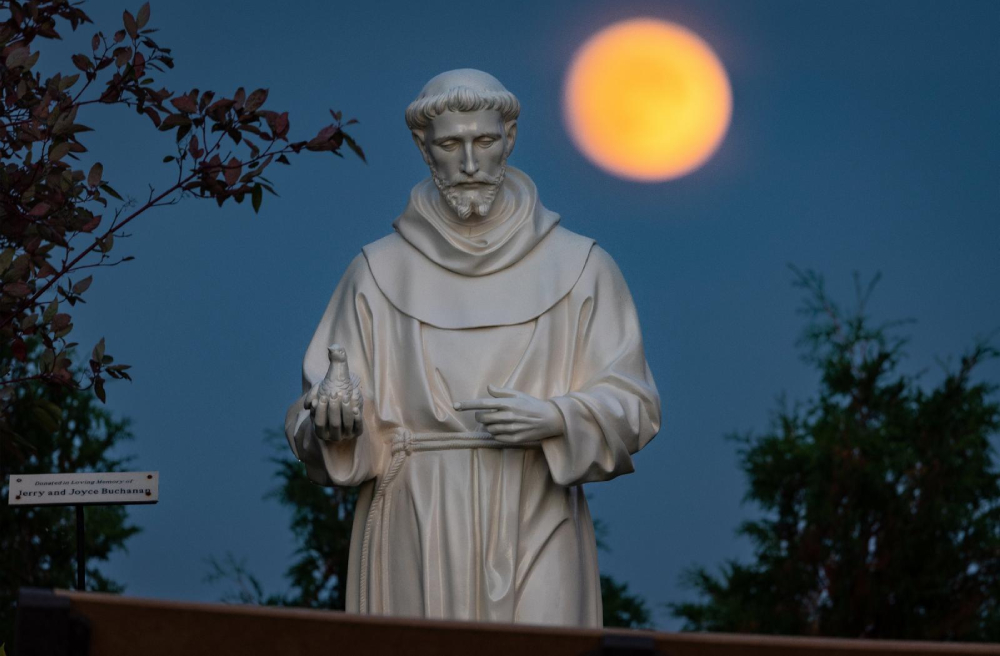
A hunter's moon rises behind a statue of St. Francis of Assisi on the grounds of the National Shrine of Our Lady of Champion in Champion, Wis., Oct 8, 2022 (OSV News/CNS/Sam Lucero)
In 2025, Franciscans celebrate the 800th anniversary of Francis of Assisi's "Canticle of the Creatures," also known as the "Canticle of the Sun." Believed to have been dictated by Francis between 1224 and 1226, it has inspired numerous translations, musical compositions, artistic renderings and cinematic productions, the most well-known being "Brother Sun, Sister Moon." One of the first "nun songs" I learned when joining the community choir was our own version of the canticle, sung at many major celebrations in the United States.
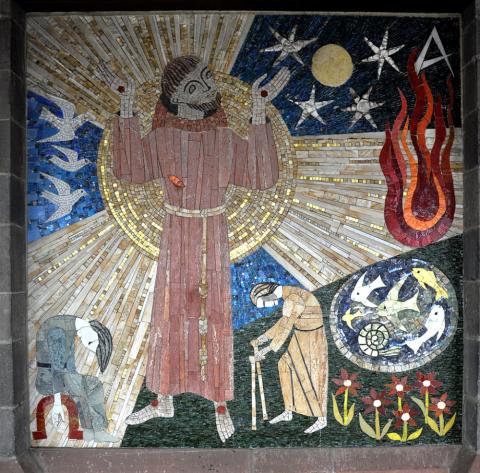
(Wikimedia Commons/Andreas Praefcke/Sr. Maria Ludgera Haberstroh)
Francis' canticle was groundbreaking in its embrace of all creation as equal to humanity. Today, it reads as a call to embrace our fragile universe and earth and all its inhabitants. An 800th anniversary cannot go unnoticed. I want to explore what the canticle is saying to me right now.
Francis was an ascetic in his personal practice, but that did not transfer to his canticle. Praise is how each piece of the canticle begins. For Francis, God is relational and to be praised, not feared. God has gifted us greatly, and we need to be thankful.
Most High, all-powerful, good Lord,
Yours are the praises, the glory, and the honor, and all blessing.To You alone, Most High, do they belong,
and no human is worthy to mention Your name.
Francis begins by proclaiming God's preeminence. He makes it very clear that God is number one and should be recognized as such. Humanity and all of creation are a distant second. Note in the opening stanza, humans are not called unworthy, rather the reference is made to reinforce God's superiority.
Praised be You, my Lord, with all Your creatures,
especially Sir Brother Sun,
Who is the day and through whom You give us light.And he is beautiful and radiant with great splendor;
and bears a likeness of You, Most High One.
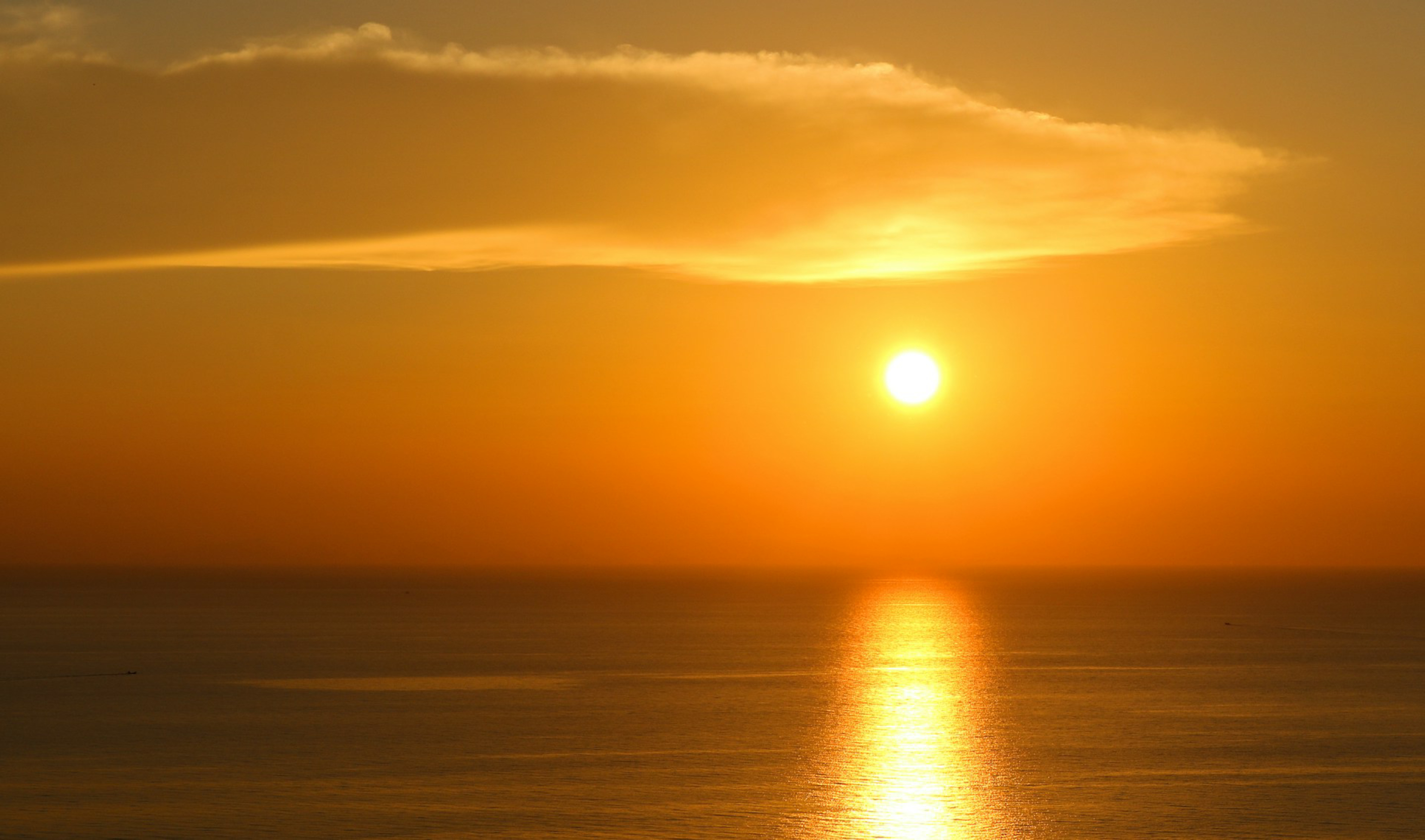
(Unsplash/Philipp Potocnik)
The first creature to be recognized is the sun. I would venture to say everyone loves a nice sunny day. There is scientific evidence that too many overcast days can affect mental health. In the ancient world, sun was essential; fire, candles or oil lamps were luxuries. The day started when it was light enough to see and stopped when it was too dark to see. The sun was life itself.
Praised be You, my Lord, through Sister Moon and the stars,
in heaven You formed them clear and precious and beautiful.
I suspect Francis and his followers were curious about the moon and stars. They knew well the scripture stories of the visitors from the east who followed the star to find the newborn Jesus. For me, gazing at them helps me feel grounded, connected to the universe. They remind me I am one very small part of a much bigger reality, and they stir questions of what lies beyond them in our ever-expanding universe.
Praised be You, my Lord, through Brother Wind,
and through the air, cloudy and serene, and every kind of weather,
through whom You give sustenance to Your creatures.
Wind can bring refreshing coolness but also devastating destruction. A wind off the lake cools the heat in summer, but in winter it means significant snow, as those along the Great Lakes basin know all too well. There are tornados and hurricanes as well, and wind can drive fires into infernos, so wind is not always welcome. Wind powers turbines to produce clean energy too. Its dual nature mirrors creation's gift and risk.
Praised be You, my Lord, through Sister Water,
who is very useful and humble and precious and chaste.
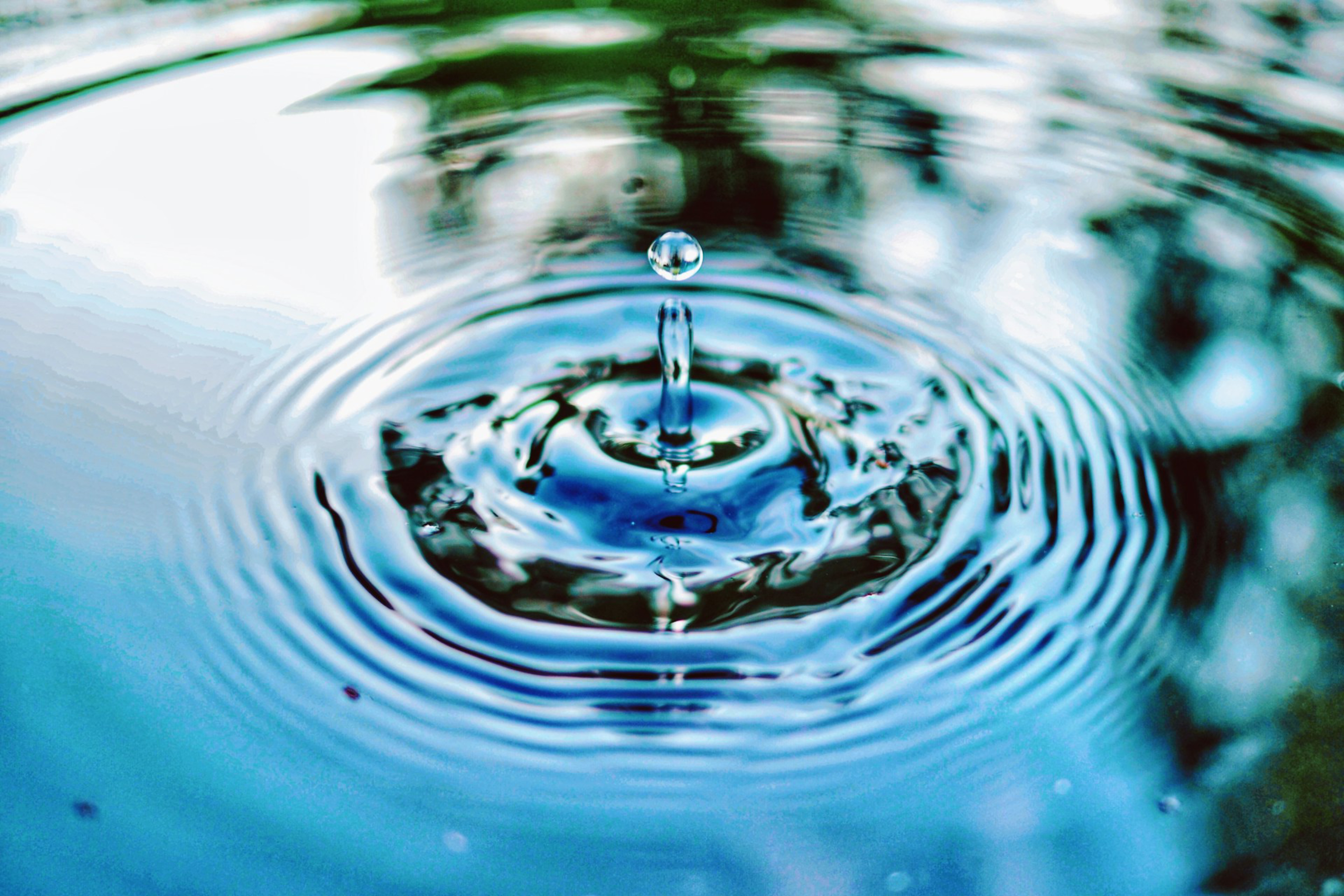
(Unsplash/Jimmy Chang)
Water sustains life, yet access is unequal. One of the global projects of my community is named Sister Water. We raise funds to dig wells and help provide clean water to places in the world where it is scarce. In the United States, it's easy to take water for granted, though contamination and outdated infrastructures remind us not to. Too much water is as devastating as is too little, another reminder of the fragile state of life.
Praised be You, my Lord, through Brother Fire,
through whom You light the night,
and he is beautiful and playful and robust and strong.
Fire brings light, heat, cooking and energy, but it can be destructive too. I do not live in a high fire risk area, but the past two summers I have experienced the effects of smoke from the various Canadian wildfires. There used to be an active fire station a block from my residence. Every time I heard the sirens, I held my breath as I couldn't imagine losing everything to flame.
Praised be You, my Lord, through our Sister Mother Earth,
who sustains and governs us,
and who produces various fruit with colored flowers and herbs.
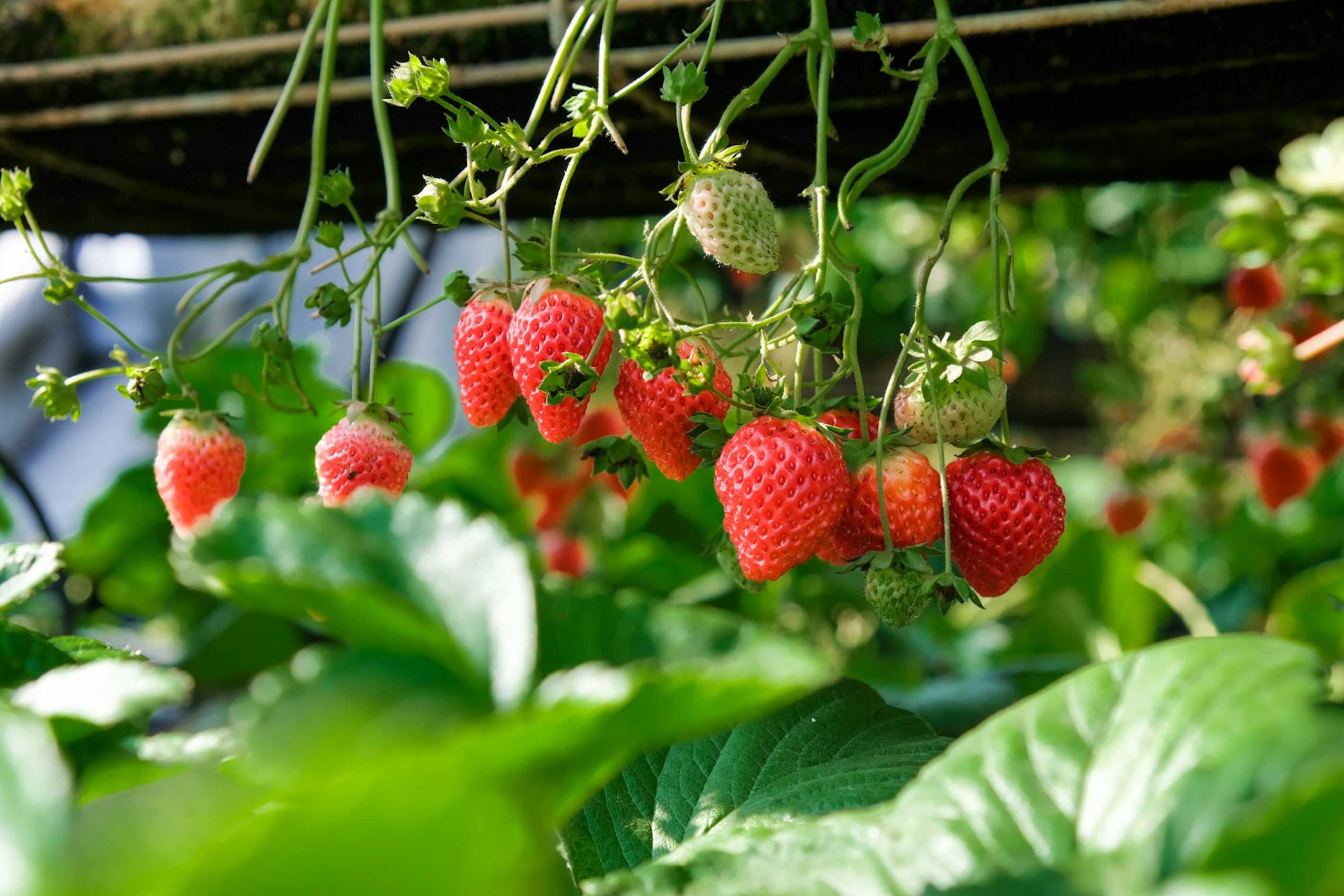
(Unsplash/H&CO)
Earth is our home, and while I continue to be amazed by new discoveries, I also mourn the destruction done by humanity. Creation itself– through wind and water and fire—reminds us of its power. The human use of resources and pollutants adds to the endangerment of our common home as Pope Francis pointed out in "Laudato Si', on Care for Our Common Home."
The last stanzas change the tone of Francis' canticle.
Praised be You, my Lord, through those who give pardon for Your
love, and bear infirmity and tribulation.Blessed are those who endure in peace
for by You, Most High, shall they be crowned.
Francis recognizes that life isn't all butterflies and rainbows. Having been a prisoner of war and disowned by his family, he knew well the pain of life. As humans we err, intentionally or not. There are difficulties and struggles everyone endures. Extending forgiveness and learning to live with difficulties and struggles are not easy tasks, hence his extension of blessing to those who live, or try to, those ideals. I'll be honest, it is not easy. There are times I want to hold on to the hurt or grudge or want revenge.
Advertisement
Praised be You, my Lord, through our Sister Bodily Death,
from whom no one living can escape.Woe to those who die in mortal sin.
Blessed are those whom death will find in Your most holy will,
for the second death shall do them no harm.*
Francis is said to have written this last stanza as he was near death. Death is a reality but rarely embraced. Sometimes, after a well lived life or long illness, it's often seen as a blessing. Death that comes unexpectedly or too soon by our mortal standards is much harder to embrace. My parents died relatively young, so I'm conscious of the fact that the end of my earthly life is closer than the beginning. While a sobering reality, it does not cause me a lot of anxiety. What is in store for me will eventually be revealed.
Praise and bless my Lord and give Him thanks
and serve Him with great humility.
Francis ends where he begins, with praise. He calls everyone to a life of gratitude and humble service. His message seems just as relevant today as it was 800 years ago. As I continue to pray with Francis' canticle, I can't help wondering what he might include if he were writing in 2025.
*This story has been updated to correct some phrasing in the "Canticle of the Creatures."






